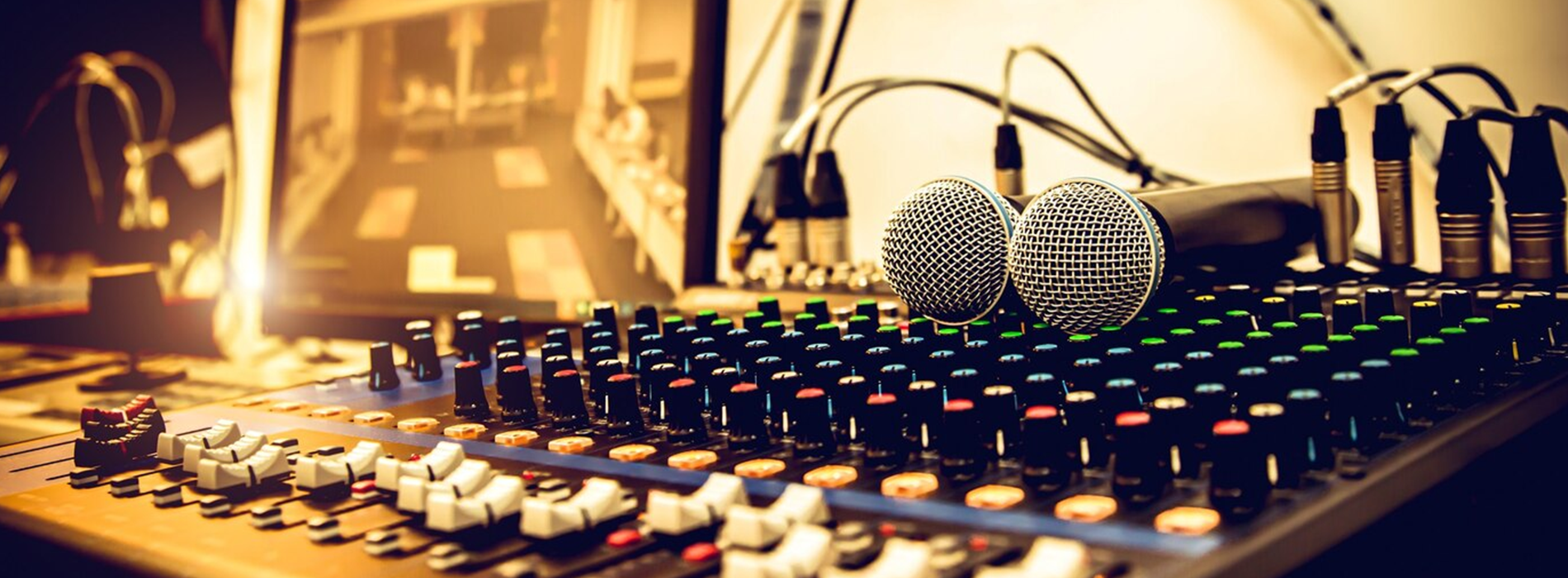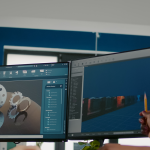From songwriting through final mastering, all stages of music production are included. But, as a musician, you may use music production as the cornerstone of your creative process. Making music is now simpler and more accessible than ever before. Yet learning the basics of music production might be frightening since there is so much to learn.
Everything you need to understand about music production fundamentals and how to launch a career in music production will be covered in this blog.
Table of contents:
- What is Music Production?
- What Does a Music Producer Do?
- Music Production Software and Equipment?
- Online Music Production Courses
- Career Opportunities in Music Production
- Conclusion
What is Music Production?
The process of conceiving, composing, and perfecting recorded music for public performance is known as music production. A piece of music’s whole lifetime, from songwriting and composition through recording and sound design to mixing and mastering, can be referred to as music production.
Despite the wide definition, digital technologies are a part of every process in modern music production. Music creation is now more accessible than ever thanks to modern technologies. Every artist may set up a home studio and start creating music at the cheapest price in history. You may start making music now with the help of the information provided here.
What Does a Music Producer Do?
You must be thinking about what a music producer does. A work of a music producer is depending on the sort of workflow and the genre of music, a music producer may play a variety of distinct responsibilities.
- The role of a music producer throughout the conventional recording process is comparable to that of a film director. They envision the song and provide the musicians with creative guidance on how to make it happen.
- The producer serves as a coordinator and aid in organizing during a recording session. They also provide original ideas and make observations about the musicians’ performances and the engineer’s technical decisions.
- The person who developed the rhythm that the musicians are rapping or singing over is most frequently referred to as the producer in R&B and hip-hop.
- The terms “producer” and “artist” are frequently used synonymously in EDM, with most performers creating their own music.
- Even in more established genres like rock, indie, or singer-songwriter, an increasing number of musicians nowadays choose to self-produce.
- You are a music producer if you use a DAW to write, record, or edit music, regardless of whatever combination of these tasks best suits you.
- Let’s move on to the foundations of music creation now that the fundamentals have been covered.
Music Production Software and Equipment?
A few key pieces of equipment are required to produce music. Since several music-producing configurations exist. For a producer to get started, you don’t need a ton of pricey equipment.
However, you will require a few essential components. I’m referring to tools like a computer, DAW, and a device for listening to your sounds.
Music production software plays a crucial role in bringing your creative ideas to life, offering powerful tools for composing, editing, and mixing tracks.
Depending on what suits your workflow, you may add some extra production equipment after you have the fundamentals for a home studio. Many producers build complete songs entirely in their DAW, yet an equal number also prefer physical contact and direct control of the hardware.
Groove boxes, synths, drum machines, and effects pedals are all enjoyable and creative additions to your setup.
Online Music Production Courses
For music lovers who wish to learn how to produce music and pursue a profession in this industry, there are several courses available online. There are various music production courses in India that a candidate can pursue online as well as on campus. The following courses will aid aspirants in understanding and developing the abilities required in this business if they have no idea how to learn music production or how to break into this field.
- AAFT Online – Diploma in Music Production
- Coursera – Blueprint to Beatmaking
- Skillshare – Ableton Live I: The First Steps of Digital Music Production
- MasterClass – Timbaland Teaches Producing and Beatmaking
- MaterClass – deadmau5 Teaches Electronic Music Production
- LinkedIn Learning – Audio Mixing Masterclass
- LinkedIn Learning – Music Production Secrets
- Noiselab – Electronic Music Production Level 1
- Udemy – Music + Audio Production in Logic Pro X – The Complete Guide
- Udemy – FL Studio 20 – Music Production in FL Studio
- BeatPro – Online Music Production Course
Career Opportunities in Music Production
One of the numerous exciting occupations in music production may be ideal for you if your passion lies at the intersection of cutting-edge technology and musical creativity. Even, learning music production has several other benefits. Let’s look at some of the top occupations aspirants may pursue after completing a music production course.
- Audio Director – The Audio Director collaborates with developers and designers to plan, arrange, and oversee the production of all audio for video games, much like a sound designer might in a film. An Audio Director is in charge of creating a video game’s whole soundtrack, including the background music, dialogue, sound effects, and songs.
- Concert Technician – A concert technician’s key responsibilities include maintaining and setting up a performer or band’s whole stage setup before a performance, supporting musicians while onstage, and packing up equipment for transfer. A concert technician typically collaborates with well-known bands that have the resources to engage a specialized staff to maintain their instruments. When on tour, a concert technician will be in charge of the equipment and instruments used by artists, as well as their upkeep and regular operation.
- Mastering Engineer – Mastering Engineer can be the ideal profession for someone who has a superb ear and a delicate yet effective approach to music. The Mastering Engineer is the music production professional who makes the last modifications to a piece of recorded music by fusing technical proficiency with an exceptional ear for detail. A Mastering Engineer requires in-depth instruction in audio technology, record production, and the elusive “musician’s ear,” which can only be developed via practice and studying at a reputable music production school.
- Music Editor – A job as a music editor may be the greatest fit for someone if he possesses engineering, management, and musical aptitudes. The music used in movies and television shows must be edited and synced with the action taking place on screen by a music editor. Music Editors are responsible for managing the artistic, practical, and administrative facets of writing and playing music for a movie or television program as the music editor. They work with the composer to organize modifications, decide where and when music will be utilized in the movie or television program, and even create interim soundtracks to aid in test screenings.
- Mixing Engineer – The Mixing Engineer is in charge of fusing the many components of a recorded piece of music into one complete version of a song by weaving a tapestry of audio elements. The mixing engineer plays a critical role. They combine the many components of a multitrack recording into a stereo track using both technical expertise and musical skill, having a significant influence on the sound of a song, album, or soundtrack.
Conclusion
The music production business is a dynamic one that continually adopts new trends and technology. Pursuing courses in music production is an excellent method to break into the music business. Before enrolling in a music production course at any college, it’s crucial to run research on the institution by reading reviews and learning what past students have to say about the course and the institution as a whole.
Related Courses

Fashion Design

Fashion Styling

Diploma In Art of Makeup

Diploma in Interior Design




















